Dr. Steve Presley News
April 1, 2025
Brought to you by Texas Tech UniversityHeroes of One Health
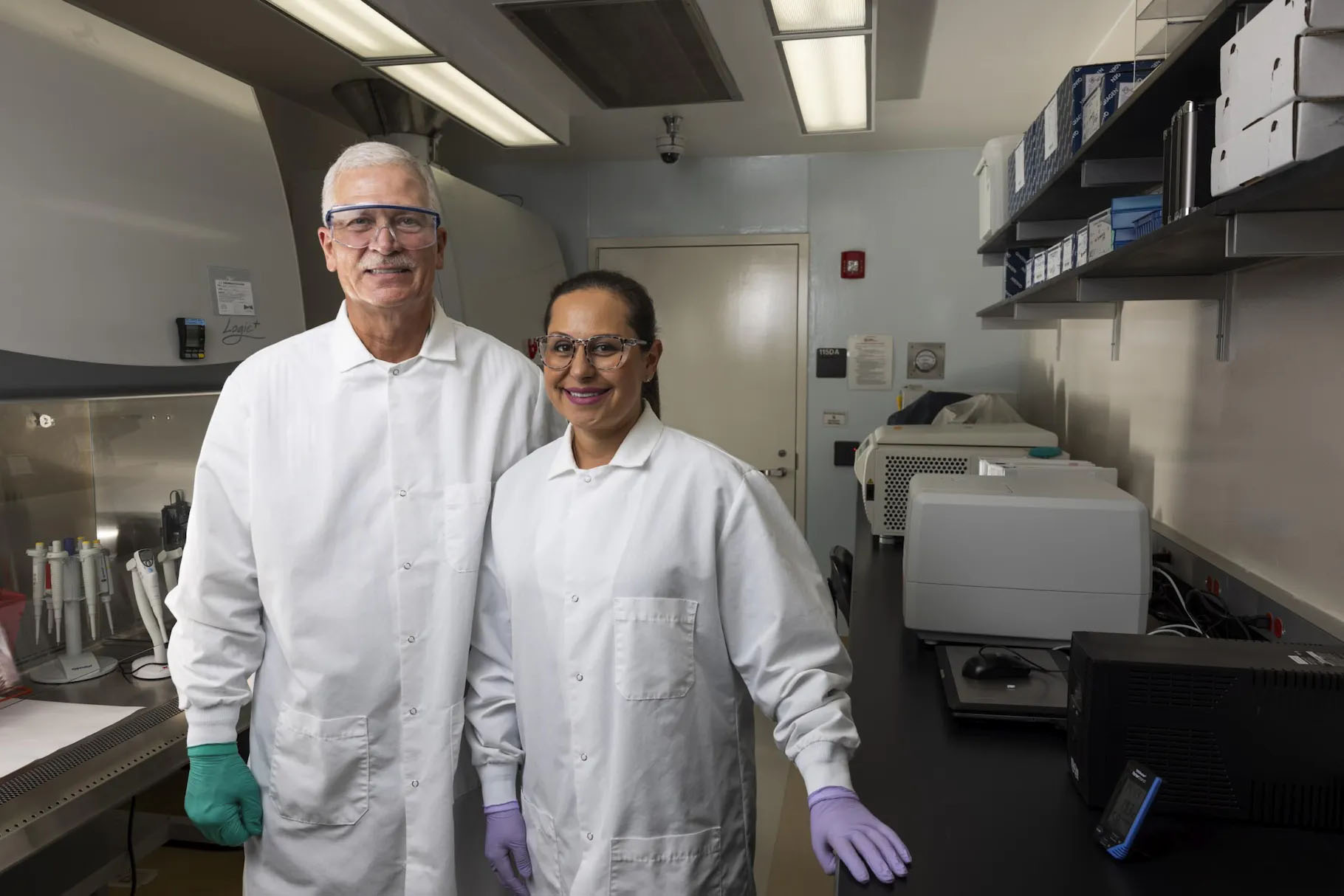
It should come as no surprise Texas Tech University has launched the Institute for One Health Innovation (IOHI).
As a top tier Carnegie research university located in a semi-arid climate and surrounded by rural communities, no place is better-equipped with the researchers or better suited to study One Health than Texas Tech.
And if history is any indication of the impact the IOHI will have on the world, big
things are on the horizon.
“Texas Tech researchers are leaders in areas like agriculture, food safety, metabolic health, infectious diseases, antimicrobial resistance and more,” said Naïma Moustaïd-Moussa, director of the Institute for One Health Innovation. “IOHI brings together those researchers to examine how these issues are impacted by the food we eat, the animals we interact with, and the ecosystem we all share. One Health is the only approach that will help us maximize the impact of our discoveries on all species to achieve optimal health for all.”
Take for instance the impact that has been made over the last few years by the Biological Threat Research Laboratory at Texas Tech (BTRL).
Led by Steven Presley and Cynthia Reinoso Webb, the BTRL houses a biosafety level 3 (BSL-3) lab able to test for some of the most dangerous diseases in the world.
-------------------------------------------------------------
March 11, 2025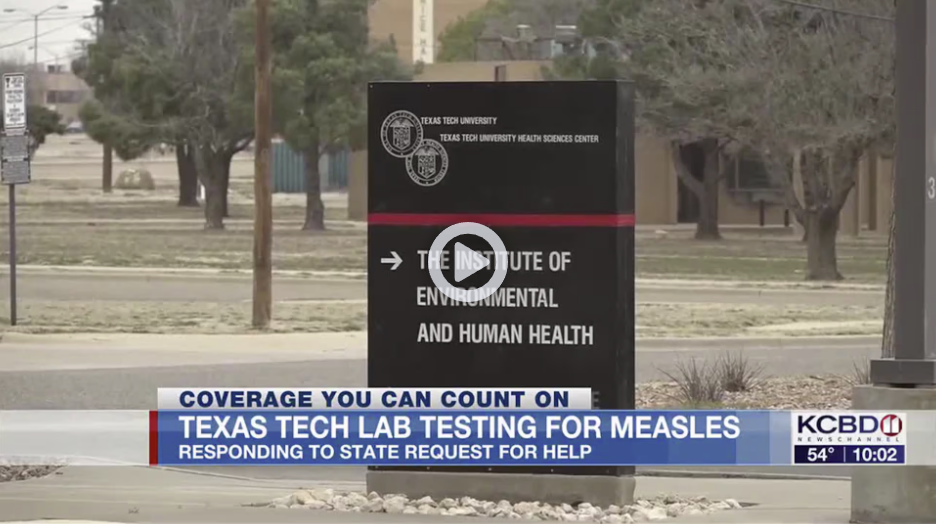
TEXAS TECH LAB TESTING FOR MEASLES - RESPONDING TO STATE REQUEST FOR HELP
LUBBOCK, Texas (KCBD) - Research scientists at the Bioterrorism Response Lab at Texas
Tech are now testing measles cases from across the area, hoping their timely work
could help slow the spread on the South Plains.
During a hearing in Austin Monday before the Committee of Public Health, State Health
Services Commissioner Dr. Jennifer Shuford explained how researchers in Lubbock are
now a part of the fight to stop measles from spreading in West Texas.
“We have asked our Laboratory Response Network partner, and so it’s Texas Tech who
runs a public health lab out there, asked them to also stand up testing and have given
them all the support and supplies that they need to do that,” Dr. Shuford said. “They
should be standing that up this week for local testing to be done.”
-------------------------------------------------------------
MAY 13, 2024
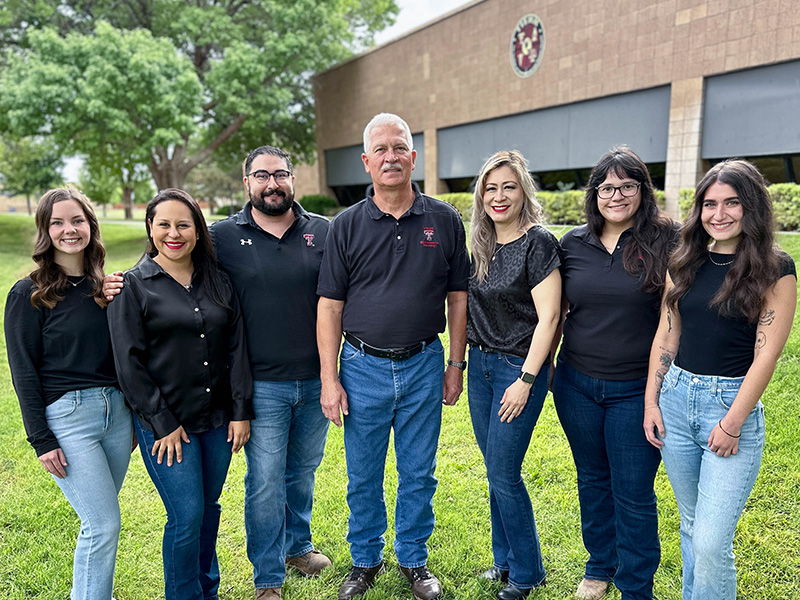
Texas Tech Researchers Help Confirm First Case of Avian Influenza Transmitted from Cow to Human
Allen Ramsey | May 13, 2024 3:05 PM by Texas Tech University
Texas Tech University’s Biological Threat Research Laboratory (BTRL) played a key role in detecting the first case of highly pathogenic avian influenza (HPAI) A (H5N1) transmitted from a mammal (dairy cow) to a human.
The case was made public in an article published in the New England Journal of Medicine. Steve Presley, the director of The Institute of Environmental and Human Health (TIEHH) and the BTRL, and Cynthia Reinoso Webb, the biological threat coordinator at TIEHH, were co-authors on the journal publication.
The journal article explains that in March a farmworker who reported no contact with sick or dead birds, but who was in contact with dairy cattle, began showing symptoms in the eye and samples were collected by the regional health department to test for potential influenza A.
Initial testing of the samples was performed at the BTRL, which is a component of the Centers for Disease Control and Prevention (CDC) Laboratory Response Network-Biological (LRN-B) located at TIEHH.
“It’s a huge thing that the virus has jumped from birds to mammals, dairy cows in this case, and then to humans,” Presley said. “That’s why this paper in the New England Journal of Medicine is very significant. It’s going to lay the foundation, I believe, for a lot of research in the future of how the virus is evolving.”
-------------------------------------------------------------
MARCH 30, 2023

Leading By Example, Keeping Others Safe
PAUL TUBBS | MARCH 30, 2023
Texas Tech’s Cynthia Reinoso Webb provided strength and leadership during the peak of the COVID-19 pandemic.
Every year, March is observed as Women's History Month. This year, we're telling the stories of extraordinary women at Texas Tech. They are making history through their research, discoveries, tenacity and scholarship. These Red Raiders not only help us commemorate the past, but they're blazing a trail toward the future.
-------------------------------------------------------------
April 21, 2022
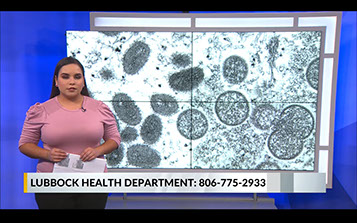
Lubbock sees first probable Monkeypox case in the county
by: Samantha Jarpe, Skylar Soto
Posted: Jul 13, 2022 / 03:04 PM CDT
Updated: Jul 13, 2022 / 03:16 PM CDT
LUBBOCK, Texas — The City of Lubbock Health Department reported its first probable
case of Monkeypox in the county, the city said Wednesday.
The public was not considered to be at risk, the city said.
“Currently, the public is not considered at risk because people with Monkeypox
in this outbreak report having close, sustained physical contact with other people
who have Monkeypox,” the city said.
Suspected or confirmed cases of Monkeypox can be reported to the Health Department
at 806-775-2935.
------------------------------------------------------------------
March 11, 2022
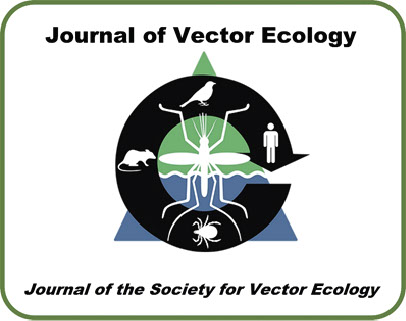
Dr. Presley Elected as Chairperson of Editorial Board of Journal of Vector Ecology
Dr. Steve Presley was recently elected as Chairperson of the Editorial Board of the Journal of Vector Ecology (JVE). The JVE is the peer-reviewed professional journal of the Society for Vector Ecology which is a professional organization committed to solving many complex problems encountered in the field of vector biology and control. Among these are the suppression of nuisance organisms and disease vectors through integration of control elements, such as environmental management, biological control, public education, and appropriate chemical control technology. Dr. Presley also serves on the Society’s Board of Directors as the Director for the South Central United States.
-------------------------------------------------------------------
October 13, 2020
Researchers: Widely Used Mosquito Control Insecticides Are Becoming Less Effective
GLENYS YOUNG - OCTOBER 13, 2020
More than two-thirds of mosquitoes tested showed strong resistance to public health
insecticides.
Every summer, vector control teams throughout the country work to minimize the mosquito population in their areas. After all, mosquitoes aren't just the uninvited guests at your backyard barbecue that leave you with itchy, red bumps; they can spread diseases including Zika, West Nile, St. Louis encephalitis, dengue fever, yellow fever and chikungunya.
So, what happens when those control methods become less effective? That's a question the state of Texas is facing now.
--------------------------------------------------------------
September 23, 2021
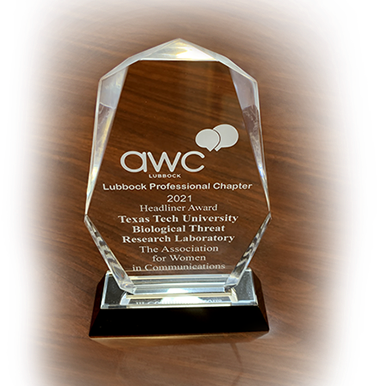 2021 Headliner Award Honoree
2021 Headliner Award Honoree
Texas Tech University Biological Threat Research Laboratory was awarded the 2021 Headliner Award from the Lubbock Professional Chapter Association for Women in Communications.
The award celebrates the positive contributions and achievements of individuals and organizations who make Lubbock a great place to live.
---------------------------------------------------------------
July 20, 2020
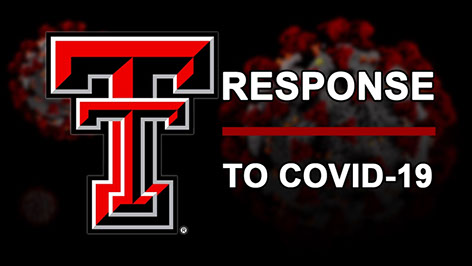
TTU laboratory awarded $2.23 million for efforts to combat COVID-19
by: News Release & Posted By Staff | newsweb@everythinglubbock.com
Posted: Jul 19, 2020 / 10:05 AM CDT / Updated: Jul 19, 2020 / 10:05 AM CDT
(Nexstar Media Group/EverythingLubbock.com Staff)
This is a news release from Texas Tech University.
Texas Tech University’s Biological Threat Research Laboratory (BTRL) was the first lab in the state of Texas to begin testing for COVID-19 in February. In the five months since, it has tested more than 9,500 samples from across a 67-county region.
Steve Presley, director of both the BTRL and The Institute of Environmental and Human Health (TIEHH) in which it’s located, said the lab won’t be slowing its activities to combat the coronavirus anytime soon.
Presley and his team have several proposed vaccine-development projects in the works. And the lab has now been granted $2.23 million from the Texas Department of State Health Services (DSHS) to continue its COVID-19-related activities through April 1, 2022.
May 20, 2020
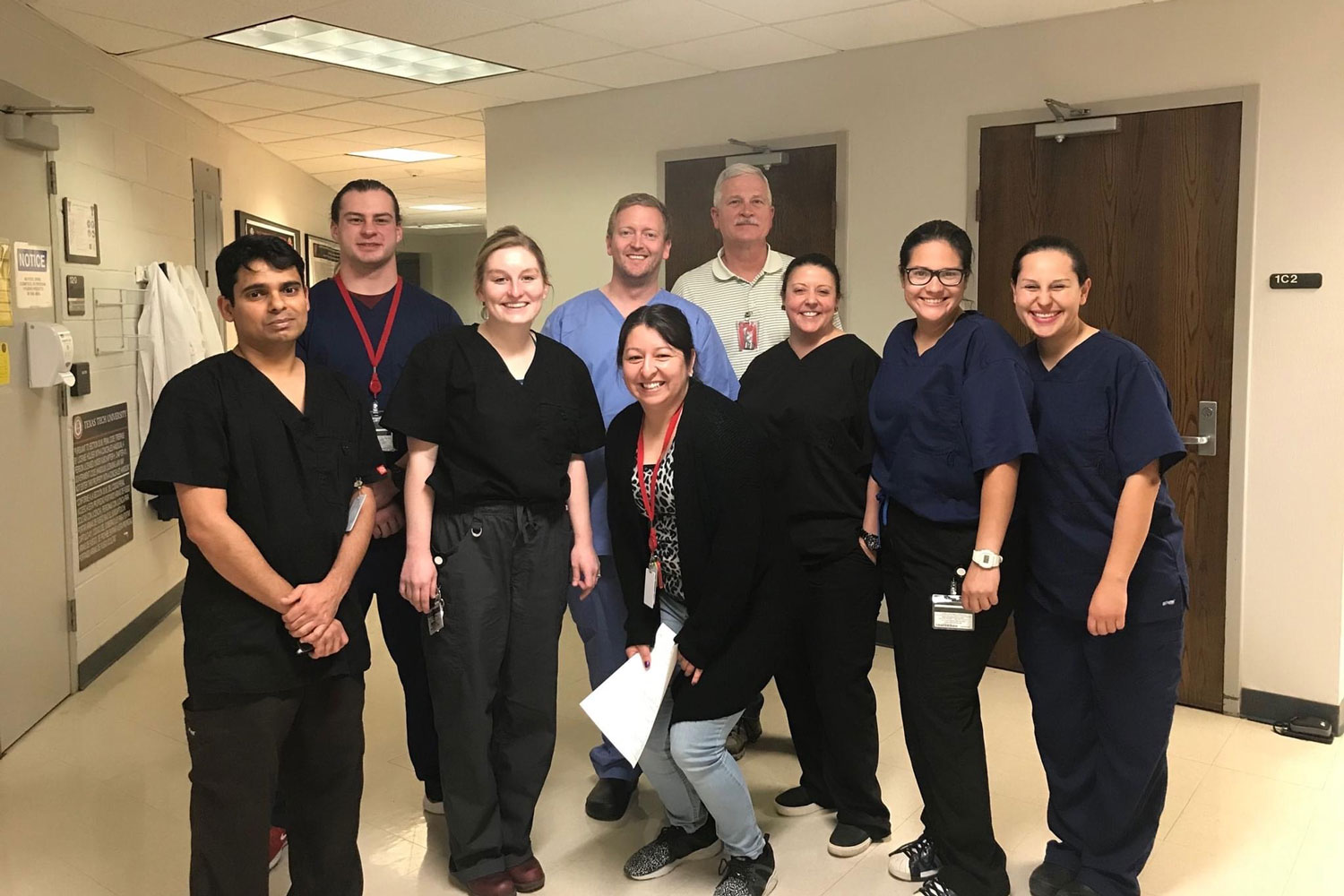
Community Spirit: 60-plus Volunteers Sign Up to Support Covid-19 Testing
ANSWERING THE CALL
On Feb. 28, Texas Tech University's Biological Threat Research Laboratory (BTRL),
part of The Institute of Environmental and Human Health (TIEHH), alerted the Centers
for Disease Control and Prevention (CDC) and the Texas Department of State Health
Services that it was ready to receive and test samples from across its 67-country
coverage area. The BTRL's five-person team could test 84 samples a day.
The Biological Threat Research Laboratory is part of The Institute of Environmental
and Human Health.
After the lab's first positive result on March 17, it became apparent that case numbers
could increase quickly, and it needed to be able to test more samples each day. With
coordination through the Texas Tech Office of Research & Innovation, a collaborative
partnership between Texas Tech and the Texas Tech University Health Sciences Center
(TTUHSC) was established to increase the capacity of the BTRL to test for coronavirus.
In late March, the call went out for volunteers to join the Texas Tech/TTUHSC COVID-19
Testing Team.
The response has been phenomenal.
-----------------------------------------------------------
April 22, 2020
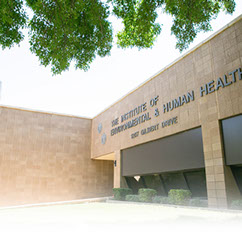
Texas Tech Laboratory Was State's First to Offer Coronavirus Testing
Two decades ago, Texas Tech created The Institute of Environmental and Human Health. In the age of COVID-19, that investment is paying dividends.
Nearly 23 years ago, the Texas Tech University System's Board of Regents unanimously approved the creation of The Institute of Environmental and Human Health (TIEHH), a new institute to assess toxic chemical impacts on the physical and human environment. Since then, its growth has been exponential.
Proposed as a joint venture between Texas Tech University and the Texas Tech University Health Sciences Center (TTUHSC), TIEHH fused the resources of Texas Tech's academic campus and its premier medical facility to address environmental and human health issues from a multidisciplinary perspective.
-----------------------------------------------------------
April 21, 2020

TTU Biological Threat Research Lab Closely Monitors COVID-19
When it was realized that COVID-19 was rapidly spreading around the globe and a pandemic was imminent, the TTU Biological Threat Research Lab team at Texas Tech University immediately began preparing to test samples from patients suspected to be infected with COVID-19. The TTU team was the first LRN lab in Texas to begin testing suspected COVID-19 cases in late February. On March 17, they detected and reported the first COVID-19 case in Lubbock.
As the number of COVID-19 cases in the United States and particularly in Texas increased, it was necessary to significantly increase the capacity of the lab to test high numbers of clinical samples every day. With coordination through the TTU Vice President for Research and Innovation, a collaborative partnership between TTU and TTUHSC was established to increase the capacity of the TTU Biological Threat Research Lab to test for COVID-19.
Through the TTU-TTUHSC partnership, more than 30 volunteers from both campuses have joined the original five person TTU Biological Threat Research Lab team to create the TTU-TTUHSC COVID-19 Testing Team. Volunteers to assist in this project include TTU and TTUHSC faculty members, research staff, graduate students, as well as citizens that have no affiliation with either university but want to help “flatten the curve” in our community.
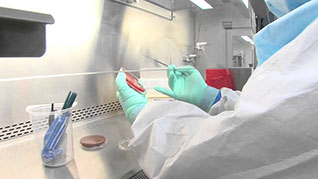 As both an academic research lab and a public health diagnostic testing lab, the
TTU Biological Threat Research Lab has been extensively involved in detecting, monitoring,
and researching outbreaks of infectious diseases of humans and animals occurring throughout
Texas since 2003. The public health diagnostic testing capability of the TTU Biological
Threat Research Lab is designated as a Centers for Disease Control and Prevention
Laboratory Response Network (LRN) facility. The expertise and technical diagnostic
capabilities available in the TTU Biological Threat Research Lab work directly with
the Texas Department of State Health Services to provide support to city and county
public health agencies and other healthcare providers within a 67 county region. The
TTU Biological Threat Research Lab team has provided public health emergency diagnostic
testing for numerous actual and potential disease outbreaks over the years, including
chikungunya, dengue fever, Ebola, seasonal influenza, West Nile fever, Zika fever,
and now COVID-19.
As both an academic research lab and a public health diagnostic testing lab, the
TTU Biological Threat Research Lab has been extensively involved in detecting, monitoring,
and researching outbreaks of infectious diseases of humans and animals occurring throughout
Texas since 2003. The public health diagnostic testing capability of the TTU Biological
Threat Research Lab is designated as a Centers for Disease Control and Prevention
Laboratory Response Network (LRN) facility. The expertise and technical diagnostic
capabilities available in the TTU Biological Threat Research Lab work directly with
the Texas Department of State Health Services to provide support to city and county
public health agencies and other healthcare providers within a 67 county region. The
TTU Biological Threat Research Lab team has provided public health emergency diagnostic
testing for numerous actual and potential disease outbreaks over the years, including
chikungunya, dengue fever, Ebola, seasonal influenza, West Nile fever, Zika fever,
and now COVID-19.
Department of Environmental Toxicology
-
Address
Department of Environmental Toxicology, Texas Tech University, Box 41163, Lubbock, TX 79409 -
Phone
806.742.4567
